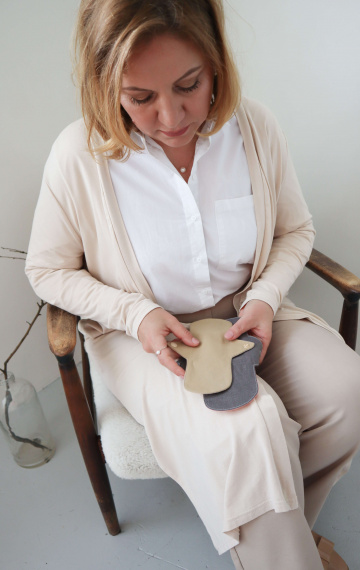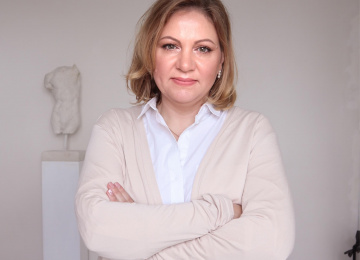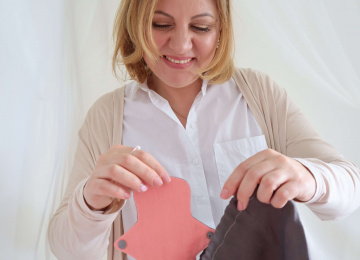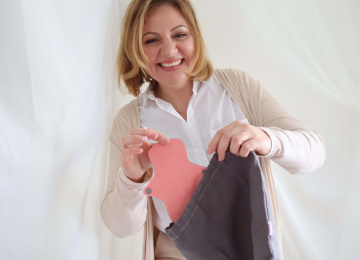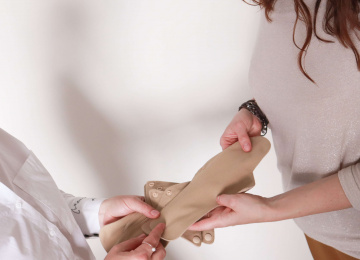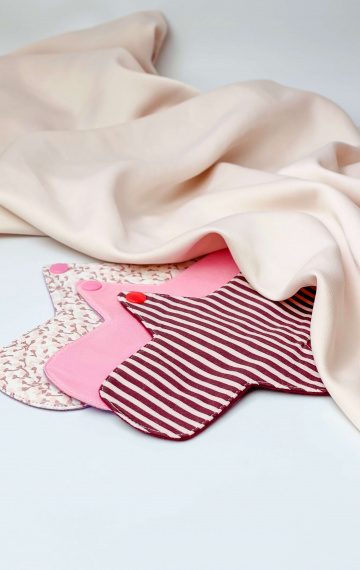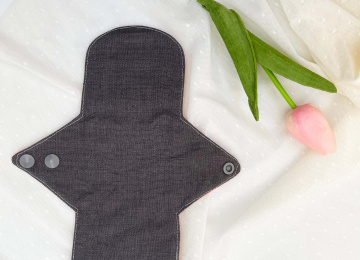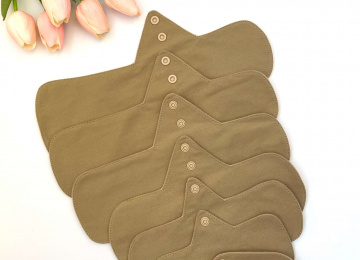Today, women care about the future of the planet as well as their own health. So in greater and greater numbers they’re opting for eco-friendly hygiene products – organic disposable pads and tampons, menstrual cups, or reusable pads.
Reusable pads are not only effective, but are also a much healthier and environmentally friendly option: they do not disturb the microflora of the intimate areas and, compared to “plastic” analogues, they do much less harm to the environment.
Scientists have estimated that every modern woman uses more than 10,000 disposable hygiene products during her reproductive period. Used pads and tampons take at least 50 years to decompose – moreover, such products can not be recycled.
So environmentalists believe that the transition to reusable feminine hygiene products will help protect the Earth from a garbage disaster.
Ecotim.For.Girls is a Ukrainian certified manufacturer of reusable feminine hygiene products, founded in 2019 in Kyiv, which aims to meet the demand for more environmentaly friendly hygenie products. The brand currently sells about 20 products in various sizes and colours. The brand’s textile products have the most natural composition – up to 90% cotton – and they can be reused for more than two years.
Capturing Western markets
At its creation, Ecotim.For.Girls focused on the Ukrainian market. Products were sold via the company’ own website, pages in social networks and marketplaces. But by 2021, the company was looking to expand, and eyeing the global markets. There is still a lot of stigma around the world about the natural biological processes of women, and the European market is the most open to change, so the company focused on it. Added to that, the quality of Ukrainian products is in no way inferior to that of Western ones.
“Ukrainian consumers are picky, so high quality products and careful service are our pride and advantage,” says Iryna Gurna, the owner of the Ecotim.For.Girls brand.
The company shipped the first batch of products to Italy in January this year. But just a month later, Russia unleashed its full-scale aggressive war against Ukraine. This hit the business hard, as the company’s production processes and supply chains were instantly disrupted. Employees and their families immediately began to move to safe regions, the production facilities of outsourcing enterprises were partially destroyed, and the surviving workshops had to be relocated to various other sites.
Gurna and her family moved to the city of Khmelnytskyi, in western Ukraine, and her business also relocated there. Now the Ecotim.For.Girls team faced a new challenge – to rebuild the company from scratch. The owner asked Khmelnytskyi City Council if it could help in every possible way. From the council, she learned about the “Stand for Ukrainian Business” initiative, run by the “EU4Business: Competitiveness and Internationalisation of SMEs” programme. The programme is jointly financed by the European Union and the German government, and is implemented by the German federal company Deutsche Gesellschaft für Internationale Zusammenarbeit (GIZ) GmbH. As part of the “Stand for Ukrainian Business” initiative, the company started working with a business consultant.
“I would like to thank everyone involved in this programme for their advisory support,” Gurna says. “Our work together was surprisingly convenient: first, there was an introductory consultation, which was followed by a constant exchange of information and documents between us and an expert who guided the company's performance for several months. As a result, we’ve developed an effective personalised roadmap for our business’s entry to Western markets. It’s important that every piece of advice goven was tailored specifically for our brand.”
Effectiveness of business consultations
As part of the business consultations, the brand and the expert:
- Developed a strategy for positioning the company for a Western audience.
- Reviewed packaging and marketing features suitable for Western markets, taking into account the specifics of each country.
- Participated in the online textile exhibition Textile Connect 2022 and drew up plans to participate in other such exhibitions. This experience taught the team to design virtual storefronts, participate in negotiations, and to process requests for both products and materials.
- Registered on various B2B partnership search platforms to find new clients and organise joint work.
- Registered on the UN website as a supplier of hygiene products for women as a social enterprise;
- Drew up plans to attend the AIDEX 2022 World Humanitarian Expo in Brussels in autumn 2022 to present its own ecological and effective feminine hygiene products.
- Actively presented itself in communities and exhibitions aimed at supporting women and their ecological lifestyle. The exchange of information in such communities helps to position the brand as both a manufacturer and a social project, as well as allowing the company to exchange ideas and experience, and find like-minded people and partners in other countries.
At the same time, Gurna started to update the brand: she re-registered the business, found sewing factories with the necessary equipment for sewing products, agreed with new suppliers of fabrics and materials, resumed production, and also contacted marketers and a photographer.
“Analyzing the Western markets, we’re convinced that our products are competitive both in terms of quality and price,” says Gurna. “We understand that exports are not quick sales – you need to prepare for them, because sometimes it takes six months from the contract to the first shipments. So we’ll definitely apply all the recommendations and achieve success.”
“We’re working on establishing ourselves in the Western markets. They haven't heard about us, but we're doing our best to be heard about, because now more than ever it’s important that the whole world learns more about Ukraine and Ukrainians.”

